Untitled Document
| Career & Success |
|
Ever-increasing demand for AI, more than 45,000 jobs available in India alone:Teamlease
Our Correspondent : 21 March 2023
 The demand for Artificial Intelligence (AI) is constantly increasing in almost all industries across the world, and this field is also in the limelight these days. According to a recent report, by February 2023, there were 45,000 AI job vacancies in India alone. Data scientist and ML engineer were among the most sought-after careers in these openings. The demand for Artificial Intelligence (AI) is constantly increasing in almost all industries across the world, and this field is also in the limelight these days. According to a recent report, by February 2023, there were 45,000 AI job vacancies in India alone. Data scientist and ML engineer were among the most sought-after careers in these openings.
According to 'Initiative for Critical and Emerging Technologies (iCET) - Forces Shaping Future of Technology', a report on AI prepared by TeamLease, applications for ML have increased and so has the demand for AI professionals for scripting languages. is Growing very fast. With this, developing traditional ML modeling skills has become paramount to pursuing a career in AI. The best is for those freshers who have specialized knowledge in AI or who have done a certified course in AI, and the starting salary for these people is also between Rs 10 lakh to 14 lakh.
This era of revolution in AI is also changing the job market, said Sunil Chemankotil, CEO, Teamlease Digital. This sector needs professionals who can design, develop and implement AI technology. He said that the good news is that the Government of India is taking proactive steps to address this challenge by entering into bilateral strategic partnerships through ICET and establishing Centers of Excellence and training initiatives.
Former CEO of Tata CLiQ has been picked by Facebook Meta as its Global Business.
Our Correspondent : 10 January 2023
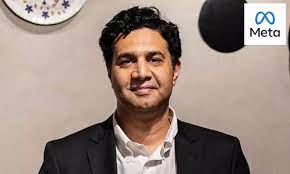 Meta has appointed Vikas Purohit as Director of Global Business Group in India. He will report to Arun Srinivas, Director and Head of Ad Business, Meta India. Vikas Purohit has vast experience in business, sales and marketing. He has worked in this field for over 20 years. He has held major responsibilities at Tommy Hilfiger, Reliance Brands, Amazon Fashion and Tata CLiQ. Meta has appointed Vikas Purohit as Director of Global Business Group in India. He will report to Arun Srinivas, Director and Head of Ad Business, Meta India. Vikas Purohit has vast experience in business, sales and marketing. He has worked in this field for over 20 years. He has held major responsibilities at Tommy Hilfiger, Reliance Brands, Amazon Fashion and Tata CLiQ.
Welcoming Vikas Purohit, Srinivas said that he has joined the team to enable businesses, support India's economic growth and shape the role of meta platforms in building the country's digital advertising ecosystem.
As Global Business Group Director, Vikas Purohit will lead Meta's work with India's largest businesses and agency ecosystem. He will lead Meta's strategic relationships with leading brands to help grow the company's revenue. At Meta the company's key business vertical teams, agency teams and business solutions teams will report to him.
Who is Vikas Purohit Vikas Purohit studied B.Tech in Mechanical Engineering at the Indian Institute of Technology (BHU) in Varanasi in 1996-2000.
Vikas Purohit has 20 years of experience in business, sales and marketing roles. An alumnus of the Indian Institute of Management, Vikas Purohit has worked at Tata CLIQ, Amazon, Reliance, Aditya Birla Group and Tommy Hilfiger.
Vikas Purohit began his 20-year career as a management trainee at the Aditya Birla Group in 2002. From where Vikas Purohit moved on to Tommy Hilfiger and then ventured into retail by joining Reliance Brands.
At Amazon, Vikas Purohit led Amazon Fashion and worked in fashion. Vikas Purohit was working as CEO of Tata CLiQ before Meta appointed him as Global Business Group Director. He joined Tata CLiQ as COO and was promoted to CEO in 2016. On Monday, January 9, Meta appointed him as director of the Global Business Group in India.
Private sector EMPLOYMENT INCREASED by 192,000 jobs in January
Our Correspondent : 06 Feb. 2013
 Private sector employment increased by 192,000 jobs from December to January, according to the January 'ADP National Employment Report', which is produced by ADP, a leading provider of human capital management services, in collaboration with Moody's Analytics. The report, which is derived from ASP's actual payroll data, measures the change in total nonfarm private employment each month on a seasonallu adjusted basis. The December 2012 report, which reported job gains of 215,000, was revised downward by 30,000 to 185,000 jobs.
Private sector employment increased by 192,000 jobs from December to January, according to the January 'ADP National Employment Report', which is produced by ADP, a leading provider of human capital management services, in collaboration with Moody's Analytics. The report, which is derived from ASP's actual payroll data, measures the change in total nonfarm private employment each month on a seasonallu adjusted basis. The December 2012 report, which reported job gains of 215,000, was revised downward by 30,000 to 185,000 jobs.
KEY FINDINGS :
-> GOODS-PRODUCING employment rose by 15,000 jobs in January which was primarily driven by an increase in construction jobs of 15,000. Meanwhile, manufacturers shed 3,000 jobs;
-> SERVICE-PROVIDING JOBS increased by 177,000. Among the service industries reported by the ADP National Employment Report, professional/business services registered the largest gain with 40,000 jobs added over the month. Trade/transportation/utilities added 33,000 jobs and financial activities added 12,000 jobs;
-> BUSINESSES with 49 or fewer employees added 115,000 jobs in January. Employment levels among medium-sized companies with 50499 employees rose by 79,000, while employment at large companies those with 500 or more employees fell by 2,000.
41 per cent of WORKERS FEEL a SHORTER COMMUTE would give them more family time
Our Correspondent : 06 Feb. 2013
A Imost a third of workers in India (31 per cent) report that they have to sacrifice sleep to fit in personal and work commitments, either by waking up too early or by burning the midnight oil, according to a Regus study. Although flexible working is highlighted as a way to reduce commuting, creating more hours in the day for sleep oor family life and improving productivity and staff retention, only 60 per cent of firms are rewarding management for encouraging the creation of a flexible workforce.
KEY FINDINGS :
-> Globally, 29 per cent of workers are sleeping less than they wish to fit in all their commitments and in india 31 per cent of workers are sacrificing sleep to fit in work and personal commitments, while over a fifth (22 per cent ) feel they have to overcompensate for time taken off for personal matters;
-> Workers highlight a shorter commute (41 per cent) and location flexibility (36 per cent) as ways of helping them spend more time with their families;
-> Businesses can benefit too, as flexible work is thought to improve productivity (69 per cent ) and help staff retention (84 per cent);
-> Currently, the management is being rewarded for encouraging a flexible work environment in 60 per cent of firms.
REVERSE INNOVATION MEETS MEDICI EFFECT
Our Correspondent : 06 Feb. 2013
Some of the vital challenges of Indian businesses today include identifying new growth platforms, markert discontinuities, strategic innovation and leveraging diversity. In an exclusive event, 'Reverse Innovaton Meets Medici Effect', SHRM India and Customer Lab brought together the biggest innovation gurus, Vijay Govindarajan and Frans Johansson, to give insights on ways to address these problems.
At this event, SHAM India and CustomerLab recognised companies, who have done outstandingly well in five key areas. Chosen out of several companies exemplified innovation by taking risks and breaking new ground in:innovation strategy; innovation culture and organisation; execution excellence; innovation protfolio management and ideation and creativity management.
A rigorous assessment evaluated organisations on their performance across these five key areas. After an initial online application, the screening panel validated company data and requested for supporting documents, data, metrics and anecdotes where relevant. An eminent jury then scrutinised each application across 23 processes of innovation to come up with a list of winners.
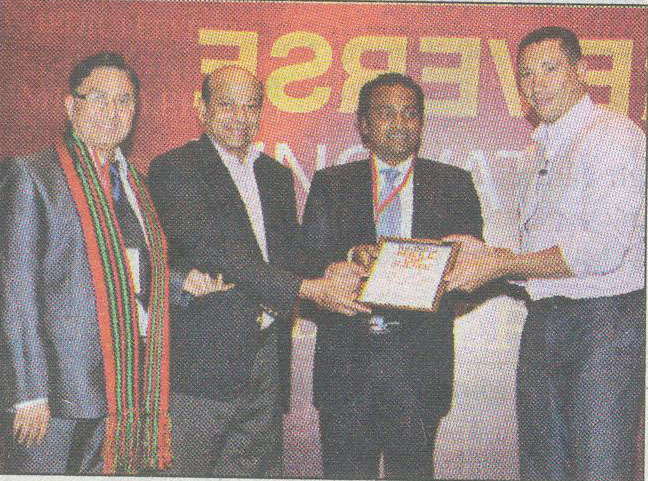
Team Apeejay stya & Svran Group(above) and Team ICICI Bank(below) with their awards
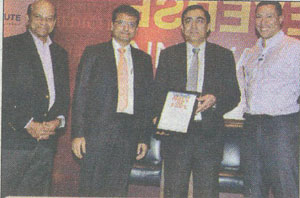 The four companies, out of 25 competing organisations, that have made their way info 'The Medici Innovation Hall of Fame,' are;
The four companies, out of 25 competing organisations, that have made their way info 'The Medici Innovation Hall of Fame,' are;
1. Apeejay Stya & Svran Group
2. ICICI Bank
3. Tata Consultancy Services
4. WNS Global Services
The award plaques were handed to the winning organisations by Vijay Govindarajan, professor of international business, Tuck School of Business, Dartmouth College and Frans Johansson, founder and CEO of The Medici Group.
Nagpur University finally cancels admissions of 'illegal' PGDCS&A students
Our Correspondent : 02 Feb. 2013
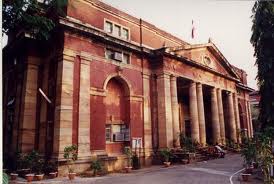 NAGPUR: The Nagpur University has finally cancelled admission of about 33 students of post-BSc diploma in computer science and application (PGDCS&A) who were illegally admitted by various colleges, including that of NU's own department. These illegal admissions were first exposed by TOI on October 5 citing ordinance number 24 of 2009 and followed by a series of reports. After this, pro-vice chancellor Mahesh Yenkie ordered an inquiry to verify the news contents. Subsequently, NU refused to provide them with the enrolment numbers, till the inquiry was over.
NAGPUR: The Nagpur University has finally cancelled admission of about 33 students of post-BSc diploma in computer science and application (PGDCS&A) who were illegally admitted by various colleges, including that of NU's own department. These illegal admissions were first exposed by TOI on October 5 citing ordinance number 24 of 2009 and followed by a series of reports. After this, pro-vice chancellor Mahesh Yenkie ordered an inquiry to verify the news contents. Subsequently, NU refused to provide them with the enrolment numbers, till the inquiry was over.
It was only in the second week of January that NU dispatched letters to four colleges conducting this course to cancel admission of ineligible students. A senior official from NU examination section confirmed that they had rushed the cancellation letters to colleges that included three from Nagpur and one from Bhandara. In fact, NU had cancelled admissions of 10 students from its own Inter-Institutional Computer Centre (IICC) who were found ineligible.
The ordinance number 24 clearly states that the students should have obtained a BSc degree of any statutory university with at least 50% marks and with mathematics and any other two of chemistry, physics, computer science, statistics, geology, electronics, environmental science, microbiology, biochemistry, biotechnology, botany and zoology as the subjects for the BSc or BE/BTech exams.
Head of NU's electronics department Satish Sharma, who is holding additional charge of IICC, also confirmed that he had received cancellation orders from the university. "Though we're yet to officially cancel their admission, we had conveyed to students in clear words that they can't be regularized as per rules. We've asked them to approach VC Vilas Sapkal," he said.
The pro-VC said they were contemplating to provide relief to these students by regularizing their admissions as per the verdict of the Nagpur bench of Bombay High Court in the case of MCA students. Even MCA scam was exposed by TOI after which their admissions were cancelled by NU. But the students got a reprieve from the court. "We're thinking of applying this verdict as it had mentioned that university can't cancel admissions at late stages but that has to be done at the threshold only," Yenkie said.
TOI had first exposed that nearly a thousand admissions were made illegally by blatantly flouting norms just like in the case of MCA. Four of IICC students who completed PGDCS&A were admitted to Ramdeobaba Kamla Nehru College of Engineering in the MCA course. They later appeared for the third and fourth semester exams, but after the illegalities came to fore, NU cancelled their admissions.
Timeline of TOI expose on illegal PGDCS&A admission
Oct 5 TOI first exposed illegal admission made by NU colleges in PGDCS&A citing ordinance number 24 of 2009
Oct 13 Pro-VC Mahesh Yenkie ordered an inquiry to verify the news content
Oct 23 NU refused enrolment numbers to such students
Jan second week NU exam section dispatches letters to colleges asking them to cancel their admissions
Jan 30 The colleges are yet to cancel their admissions and are giving hollow assurances to students
University of Pune plea against lower court's order dismissed, to pay interest for delay
Our Correspondent : 02 Feb. 2013
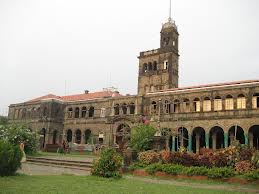 PUNE: The district and sessions court here has dismissed the University of Pune's (UoP) appeal against the lower court's order that directed the UoP to pay interest, at the rate of 10%, to a retired deputy registrar for delaying his pension and gratuity dues.
PUNE: The district and sessions court here has dismissed the University of Pune's (UoP) appeal against the lower court's order that directed the UoP to pay interest, at the rate of 10%, to a retired deputy registrar for delaying his pension and gratuity dues.
The court of additional district and sessions judge Prachi P Kulkarni, while disposing of the appeal on January 2, also dismissed a cross-objection filed by former deputy registrar Madhav C Khanwelkar, contesting the claim amount worked out by the university.
In December 2011, the UoP had preferred a first appeal in the Bombay high court against the lower court's order and had deposited Rs 56,905 with the high court's registry for the interest payable to Khanwelkar towards the delayed post-retirement dues. The case was later transferred to the sessions court here on the issue of pecuniary jurisdiction.
"In my opinion, the appeal as well as the cross-objection carries no merit and is liable to be dismissed," judge Kulkarni stated in the 25-page order. The court also held that the August 30, 2011 order by the trial court of joint civil judge (senior division) P S Duthade was 'proper and needed no interference'. The court has allowed Khanwelkar to recover the Rs 56,095 deposited by the UoP with the Bombay high court.
Khanwelkar, who was deputy registrar (academic), retired from service on October 31, 2004. A year before his retirement, the then UoP vice-chancellor (VC) Ashok Kolaskar and registrar D D Deshmukh had passed orders reverting his posting from deputy registrar to that of an assistant registrar after Khanwelkar had proceeded on a leave preparatory to retirement without sanction from the concerned authorities.
Khanwelkar challenged this in the University and College Tribunal (UCT), which passed an order on June 20, 2005 quashing the university's move to revert him to assistant registrar's post. A subsequent review appeal by the UoP was also dismissed by the UCT. Later, the university moved the Bombay high court.
After Kolaskar's retirement in February 2006, the then acting VC Ratnakar Gaikwad got the case withdrawn from the high court on July 18, 2006 and Khanwelkar's pension and gratuity arrears were paid from the period thereafter.
Khanwelkar moved the civil court in July 2007, claiming Rs 2.25 lakh as interest, at the rate of 12%, on the pension and gratuity arrears for the period between May 2005 and October 2006 and another Rs 2 lakh as compensation for mental distress caused by the varsity officials.
Disposing of the same, joint civil judge Duthade had held that both, Kolaskar and Deshmukh, were jointly responsible for not sending Khanwelkar's pension papers in time to the government. The court held that Khanwelkar had partly proved the case for interest on delayed payment of pension arrears, which should be at the rate of 10% for the one year and five month period between May 2005 and October 2006.
The court, however, rejected Khanwelkar's claim for Rs 2 lakh compensation on the grounds that the two former officers cannot be said to be individually responsible for the delay as they were discharging their duties as statutory officers.
The UoP had challenged this order while Khanwelkar filed a cross-objection contesting the Rs 56,905 amount worked out by the university for payment of interest on delayed dues.
|
|
|